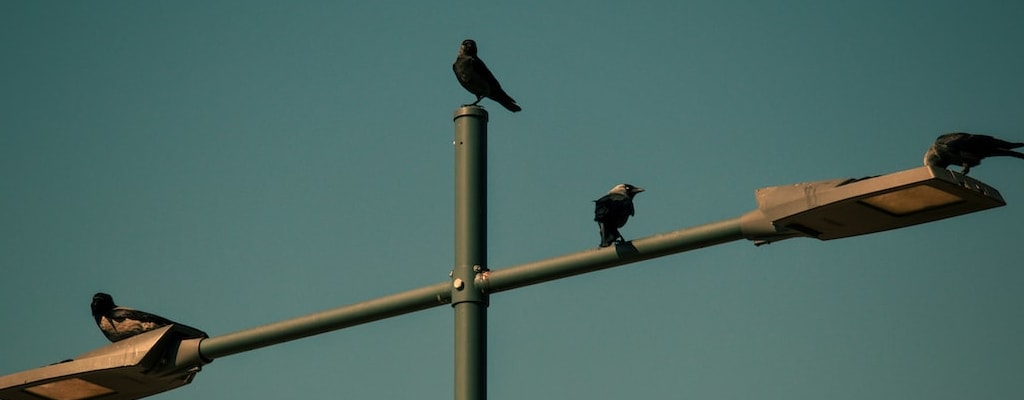in a pig’s eye: Idiom Meaning and Origin
What does ‘in a pig's eye’ mean?
The idiom "in a pig's eye" is used to express disbelief or skepticism towards something, suggesting that it is highly unlikely or impossible to be true.

Idiom Explorer
The idiom *pigs can fly* means that something is completely impossible. It is often used to express disbelief or to emphasize the unlikelihood of a situation or event.
The idiom "I see, said the blind man" is a sarcastic remark used to question the credibility of a statement or to express doubt or disbelief. It suggests that the speaker understands or acknowledges the statement, even though they may not actually "see" it.
The idiom "in your dreams" means that something is unlikely or impossible to happen in reality. It is often used as a dismissive response to indicate that someone's desire or suggestion is unrealistic.
The idiom "in a pig's patoot" means in a difficult or unpleasant situation. It is often used to express frustration or annoyance. The exact origin of this phrase is unclear, but it likely refers to the idea of being in an undesirable or uncomfortable position, similar to being in a pig's hindquarters.
"In a pig's arse" is an idiom used to express strong disbelief or denial. It indicates that something is highly unlikely or impossible to occur. The phrase draws on the image of an unimaginable or absurd situation, associating it with the rear end of a pig for emphasis.
If pigs had wings, it is a popular idiom used in English to express the idea of something being highly unlikely or improbable. The phrase "if pigs had wings" is often used in a humorous or sarcastic manner to convey the absurdity of a certain situation or suggestion.
The idiom "holy cow" is an expression of surprise or astonishment. It is used to convey a sense of amazement or disbelief in a situation or event.
The idiom "hard on the eyes" is used to describe something that is visually unappealing or difficult to look at.
The idiom "happy as a pig in shit" means to be extremely happy or content in a situation or environment that may be considered dirty or unappealing by others.
The idiom "happy as a pig in mud" means being extremely content and satisfied in a situation or environment.
The idiom "happy as a pig in mud" is a commonly used expression that conveys a sense of extreme contentment or happiness. It is believed that the idiom may have originated from the observation that pigs appear to be joyful and at ease when they are indulging in this behavior.
Porcine Pupils
The idiom "in a pig's eye" is typically used in American English to convey disbelief or skepticism. It is often used in response to a statement or claim that is considered highly unlikely or false. The phrase has its origins in early 19th-century America and is rooted in the literal and figurative meanings of the words involved.
The literal meaning of the idiom refers to the eye of a pig, which is small, hard to see, and generally not held in high regard. This literal meaning serves as a basis for its figurative usage, where the phrase implies something that is highly improbable or untrue. The exact origins of the expression remain unclear, but it gained prominence in the 1800s and continues to be used today.
Within the context of etymology, the idiom "in a pig's eye" falls under the broader category of figurative expressions that draw upon the animal kingdom to convey specific meanings. As a part of this phenomenon, idioms related to animals often rely on metaphor and cultural associations to communicate complex ideas concisely.
While the origins of the idiom can be traced back several centuries, its exact entry into the English language is challenging to pinpoint. It is likely that the phrase emerged as a result of the pig's negative portrayal in popular culture, where it has traditionally been associated with filth, greed, and lack of intelligence.
The oxymoronic nature of the idiom adds to its effectiveness as a rhetorical device. By using the phrase "in a pig's eye," speakers can express their disbelief or dismissal of a statement with humor and irony. The idiomatic nature of the expression also adds a certain charm to its usage, making it a memorable way to convey skepticism.
Despite its longevity and widespread use, the idiom "in a pig's eye" remains primarily used in informal contexts, such as casual conversations, humorous exchanges, or fictional dialogue. The phrase is less commonly employed in formal writing or professional discourse, where a more straightforward approach is typically favored.
The simplicity and cultural resonance of the idiom contribute to its enduring appeal among English speakers. Through its various applications and interpretations, "in a pig's eye" encapsulates the skeptical nature of human language, providing a succinct way to express disbelief while reflecting our complex relationship with the animal world.
The idiom "in a pig's arse" is similar to "in a pig's eye" and is also used to express disbelief or skepticism. While the two idioms share a common theme, "in a pig's eye" is more commonly used in American English, whereas "in a pig's arse" is often heard in British English.
Similarly, the idiom "pigs can fly" is used to imply that something is highly unlikely or impossible. This phrase emphasizes the absurdity of the situation, as pigs are unable to fly in reality. It serves as a humorous way to dismiss a statement or claim.
"if pigs had wings" is another way to express skepticism or doubt. By referencing the imaginary scenario of pigs having wings, this idiom highlights the improbability of a given situation. It suggests that the likelihood of pigs growing wings and flying is minuscule.
The idiom "in a pig's patoot" is similar in meaning to "in a pig's eye" and is used to convey disbelief or skepticism. Both idioms employ the image of a pig to emphasize the unlikelihood or falsehood of a statement. The phrase "in a pig's patoot" is a variation on the more common idiom "in a pig's eye" and adds a touch of humor to the expression.
Example usage
Examples of how the idiom "in a pig's eye" can be used in a sentence:
- He promised to pay me back, but in a pig's eye will that happen.
- She claimed to have seen a UFO last night, but in a pig's eye did I believe her.
- They told me I would get a promotion, but in a pig's eye will that ever happen.
The idiom "in a pig's eye" is used to express disbelief or to indicate that something is highly unlikely or impossible. It is often used to convey skepticism or doubt towards a statement or claim.
More "Skepticism" idioms

